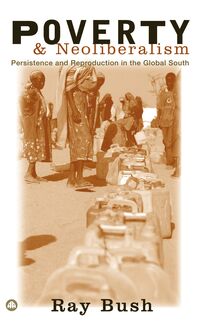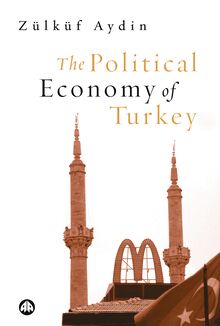The End of Development? , livre ebook
183
pages
English
Ebooks
2002
Obtenez un accès à la bibliothèque pour le consulter en ligne En savoir plus
Découvre YouScribe en t'inscrivant gratuitement
Découvre YouScribe en t'inscrivant gratuitement
183
pages
English
Ebooks
2002
Obtenez un accès à la bibliothèque pour le consulter en ligne En savoir plus
Publié par
Date de parution
20 mars 2002
Nombre de lectures
0
EAN13
9781849640916
Langue
English
Many development theorists turned to postmodernist theory to try to move on from this impasse, which in the 1990s led to a new line of critical thought that heralded 'the end of development'. They argued that development studies should be replaced by new strategies of emancipation, or 'new social movements' theory, originating in groups such as the Zapatistas of Mexico.
This book summarises the contested ideas of development studies and new social movements theory while rejecting calls for the end of development. Using postmodern theory to demonstrate that forms of development can be complementary to emancipatory social movement projects, Trevor Parfitt develops an alternative model of development which incorporates the needs of peoples both South and North.
1. Introduction
2. From Post-Modernity to Post-Development
2.1. Introduction
2.2. From Modernity to Post-Modernity
2.3. Post-Development and its Discontents
2.4. Conclusions
3. Discourse of Power or Truth?
3.1. Introduction
3.2. Archaeologies and Genealogies
3.3. Discourse Ethics and the Problems of Application
4. Towards a Development of Least Violence?
4.1. Introduction
4.2. Deconstruction at First Sight
4.3. Ethics as First Philosophy
4.4. A Philosophy of the Least Violence
4.5. Undecidability and the Decision
4.6. Deconstruction, Politics, Development
4.7. Conclusions
5. New Social Movements: A Subject of Development?
5.1. Introduction
5.2. Social Movements and Permanent Revolution
5.3. An Islamic Politics of Least Violence?
5.4. Conclusions
6. Aid and the Principle of Least Violence
6.1. Introduction
6.2. Participation as a Development of Least Violence
6.3. Conclusions
7. Conclusion
Notes
Index
Publié par
Date de parution
20 mars 2002
Nombre de lectures
0
EAN13
9781849640916
Langue
English


